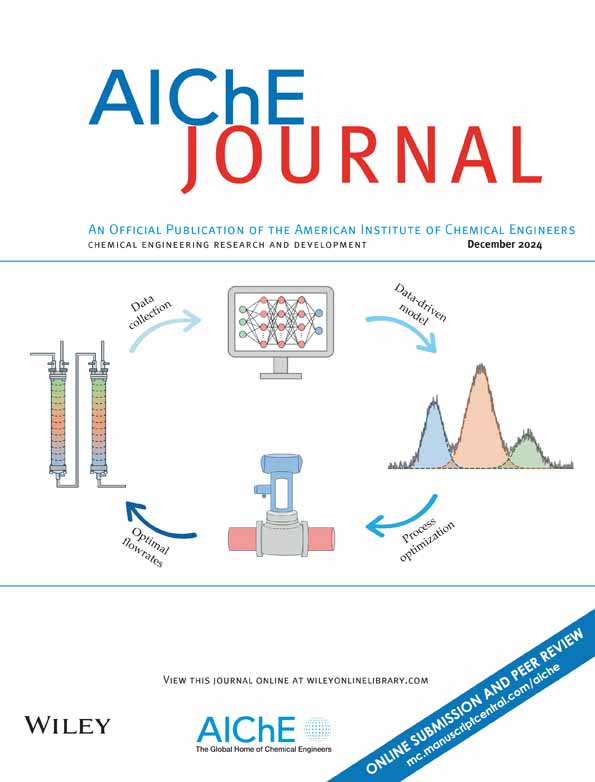Vision transformers for three‐phase flow classifications with data augmentation through generative adversarial networks
IF 3.5
3区 工程技术
Q2 ENGINEERING, CHEMICAL
引用次数: 0
Abstract
The identification of multiphase flow regimes is important for the efficient design and operation of upstream oil and gas production pipelines. Convolutional neural network (CNN) is widely used to classify flow regimes. However, CNN usually fails to classify the small and imbalanced datasets accurately. In the current work, data augmentation is carried out using Wasserstein generative adversarial networks‐gradient penalty (WGAN‐GP) to remove the class imbalance. The Vision Transformers (ViT) model pre‐trained on the ImageNet‐21k dataset has been employed for classification. The architecture of ViT is simple and robust, which can extract dynamic features of multiphase flow images. Unlike CNN, ViT has successfully distinguished all the classes and performed consistently well across all the class systems. The methodology developed for the current case has provided a novel framework for the identification and classification of imbalanced and small datasets of multiphase flow regimes occurring in upstream oil and gas pipelines.通过生成对抗网络进行数据增强的三相流分类视觉转换器
多相流型的识别对于上游油气生产管道的高效设计和运行具有重要意义。卷积神经网络(CNN)被广泛用于流型分类。然而,CNN通常不能准确地对小而不平衡的数据集进行分类。在目前的工作中,使用Wasserstein生成对抗网络-梯度惩罚(WGAN - GP)进行数据增强以消除类别不平衡。在ImageNet - 21k数据集上预先训练的视觉变形器(ViT)模型被用于分类。该方法结构简单,鲁棒性好,能够有效地提取多相流图像的动态特征。与CNN不同的是,ViT成功地区分了所有的类,并且在所有的类系统中都表现得很好。针对当前案例开发的方法为识别和分类上游油气管道中多相流流态的不平衡和小数据集提供了一个新的框架。
本文章由计算机程序翻译,如有差异,请以英文原文为准。
求助全文
约1分钟内获得全文
求助全文
来源期刊

AIChE Journal
工程技术-工程:化工
CiteScore
7.10
自引率
10.80%
发文量
411
审稿时长
3.6 months
期刊介绍:
The AIChE Journal is the premier research monthly in chemical engineering and related fields. This peer-reviewed and broad-based journal reports on the most important and latest technological advances in core areas of chemical engineering as well as in other relevant engineering disciplines. To keep abreast with the progressive outlook of the profession, the Journal has been expanding the scope of its editorial contents to include such fast developing areas as biotechnology, electrochemical engineering, and environmental engineering.
The AIChE Journal is indeed the global communications vehicle for the world-renowned researchers to exchange top-notch research findings with one another. Subscribing to the AIChE Journal is like having immediate access to nine topical journals in the field.
Articles are categorized according to the following topical areas:
Biomolecular Engineering, Bioengineering, Biochemicals, Biofuels, and Food
Inorganic Materials: Synthesis and Processing
Particle Technology and Fluidization
Process Systems Engineering
Reaction Engineering, Kinetics and Catalysis
Separations: Materials, Devices and Processes
Soft Materials: Synthesis, Processing and Products
Thermodynamics and Molecular-Scale Phenomena
Transport Phenomena and Fluid Mechanics.
 求助内容:
求助内容: 应助结果提醒方式:
应助结果提醒方式:


